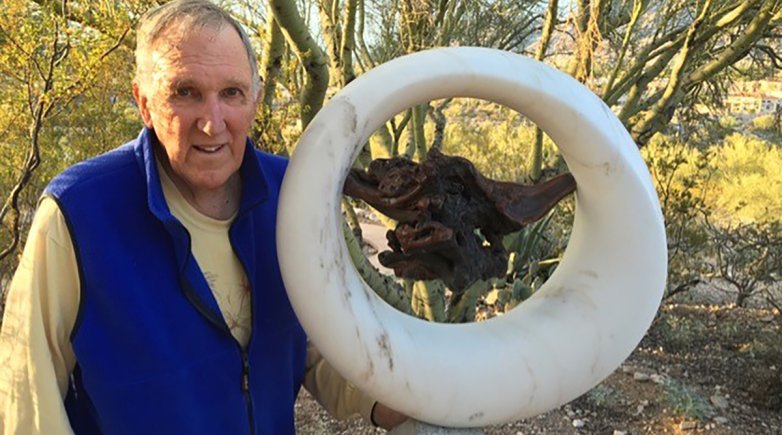John Mittermeier

"I wanted to know how it was possible to have that kind of knowledge about things.”
As a prep at Exeter, John Mittermeier ’04 had what he calls a “foundational” experience. Biking around campus at dusk, he spotted “something interesting” in a reed bed at Powder House Pond. He pedaled to the bookstore, riffled through a bird guide, and realized he had seen a juvenile purple gallinule — a small, long-legged marsh forager, only the fifth or sixth ever recorded in New Hampshire. “It generated a lot of excitement in the local birding community,” he says. “It stayed for several days. A lot of people came to see it. It was a great experience for me, having made that discovery.”
In fact, Mittermeier’s penchant for discovery had started long before. His father and stepmother are conservation biologists. By the time he landed at Exeter, he had lived in at least 10 places, including New York, Michigan, Virginia and Madagascar, where at age 11, he lived with his biologist mother in a small town, seven hours from the nearest telephone. For a year, his mother studied chameleons while he soaked up the flora and fauna of the island’s southwestern “spiny desert,” an arid region bristling with hairy cactus-like plants and tentacular succulents. “It was a really interesting experience,” Mittermeier says. “It was also challenging, kind of isolating, but it really turned my attention toward natural history even more.”
En route back to the United States, he and his mother joined a safari in East Africa. Mittermeier, who had obtained a bird checklist, tried to stump their guide. “I have a distinct memory of a shadow going over the road,” he says, adding: “I asked him what the shadow was and, without missing a beat, he says, ‘bateleur eagle.’ I remember thinking: ‘What is this magic? What is this Jedi power this guy has?’ I wanted to know how it was possible to have that kind of knowledge about things.”
This sense of wonder propelled Mittermeier through work in the Solomon Islands, Indonesia, Suriname and Samoa, and he ultimately earned a master’s degree in systematics, ecology and evolution at Louisiana State University and a Ph.D. in biodiversity research at the University of Oxford in England. In 2015, Forbes recognized him as one of its “30 Under 30” in science. He has spotted over 5,700 bird species, around half the world’s total.
Now, as director of the search for lost birds at the American Bird Conservancy, Mittermeier spearheads a global initiative to develop conservation projects for some of ornithology’s “greatest mysteries”: birds around the world that have not been seen in 10 years or more. “These are birds we hope are not extinct yet,” he says. “Or they’re birds that’ve been overlooked, that nobody’s managed to find. We want to put a spotlight on those species and find them.”
— Juliet Eastland ’86
Editor's note: This article first appeared in the summer 2023 issue of The Exeter Bulletin.



